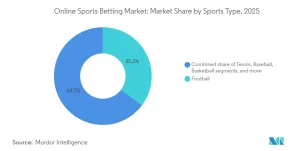
Let’s be honest. Betting can feel like a lonely game. You’re staring at stats, trying to outsmart the oddsmakers, and second-guessing your own gut. It’s you against the house. But what if there was a better way? A smarter, more connected approach that taps into the collective brainpower of thousands? Well, that’s exactly what we’re diving into today.
Community-driven betting is flipping the script. It’s moving from the solitary gambler in a dimly lit room to a vibrant, buzzing town square of shared knowledge. It’s about collaborative prediction models that turn individual hunches into a powerful, data-backed consensus. This isn’t just a trend; it’s a fundamental shift in how people approach the art of the prediction.
The Wisdom of the Crowd: More Than Just a Hunch
You’ve probably heard the phrase “the wisdom of the crowd.” It’s the idea that a large group of people, collectively, is smarter than any single expert. Think of it like this: guessing the number of jellybeans in a jar. One person might be way off. But if you average the guesses of a hundred people? You’ll often land startlingly close to the truth.
Community-driven betting insights operate on the exact same principle. Instead of relying on one pundit’s opinion, you’re leveraging the aggregated knowledge, research, and intuition of a dedicated community. This collective intelligence helps smooth out individual biases and blind spots, creating a more robust and reliable forecast.
How Collaborative Prediction Models Actually Work
Okay, so it sounds good in theory. But how does it work in practice? How do you turn a thousand different voices into a single, actionable insight? That’s where the magic of collaborative prediction models comes in.
The Data Aggregation Engine
At its core, a collaborative model is a sophisticated data aggregation engine. It gathers predictions, analyses, and data points from every participating member of the community. This isn’t just a simple poll; it’s a complex system that weighs contributions based on factors like:
- User Track Record: A member with a proven history of accurate predictions might carry more weight than a newcomer.
- Confidence Levels: How sure is the user about their pick? Models often ask for a confidence score.
- Stake Size: In some systems, the size of a user’s hypothetical or real wager can influence the model’s output.
- Diversity of Opinion: Good models actively seek out contrarian views to avoid “groupthink.”
From Chaos to Clarity: The Output
All this chaotic, raw data is then processed. Algorithms crunch the numbers, identify patterns, and filter out the noise. The final output is usually a clean, clear consensus pick—a probability percentage or a recommended value bet that represents the community’s collective verdict. It’s the distillation of a thousand hours of research into a single, powerful insight.
The Tangible Benefits of Going Community-First
Why would anyone share their hard-earned insights? And what do you actually get out of it? The benefits, honestly, are pretty compelling.
- Diversified Knowledge: You might be a genius on Premier League soccer, but clueless about NBA playoffs. A community fills your knowledge gaps instantly.
- Emotional Detachment: It’s easy to get emotionally attached to your favorite team. The crowd has no such bias, offering a cooler, more objective perspective.
- Identifying Value: By seeing where the community’s probability differs from the bookmaker’s odds, you can spot incredible value betting opportunities you’d have missed on your own.
- Continuous Learning: It’s a constant education. You see how others analyze games, what stats they prioritize, and you become a sharper bettor yourself.
Real-World Platforms Making It Happen
This isn’t some futuristic concept. It’s happening right now on a bunch of different platforms. From massive subreddits where users dissect every matchup to dedicated platforms built specifically for collaborative prediction. These spaces are less about boasting about wins and more about the genuine, collaborative pursuit of finding an edge. The culture is about “we” instead of “me.”
The Inevitable Challenges and Pitfalls
Now, it’s not all sunshine and rainbows. Relying on the crowd comes with its own set of risks. The biggest one? Echo chambers. Sometimes a community can become an echo chamber, where popular opinions get amplified and dissenting voices are drowned out. This can actually increase bias instead of reducing it.
Then there’s the problem of misinformation. Not everyone in a community has good intentions or solid methodology. A strong model needs a way to identify and mitigate “bad actors” or just well-meaning but consistently inaccurate members. The integrity of the data is everything.
The Future is Collaborative
Looking ahead, the potential is enormous. We’re already seeing the integration of AI and machine learning with these human-driven communities. Imagine an AI that doesn’t replace the crowd, but learns from it—identifying the most reliable predictors, spotting micro-trends in the discussion, and continuously refining the model. The synergy between human intuition and artificial intelligence could create prediction models of unprecedented accuracy.
The old model of betting was a solo sport. The new model is a team game. It’s about recognizing that in a world of infinite data, no single person can see the whole picture. But together? Together, a community can piece it together, one insight at a time. It turns betting from a game of pure chance into a more thoughtful, strategic, and frankly, more social pursuit. And that’s a future worth betting on.







